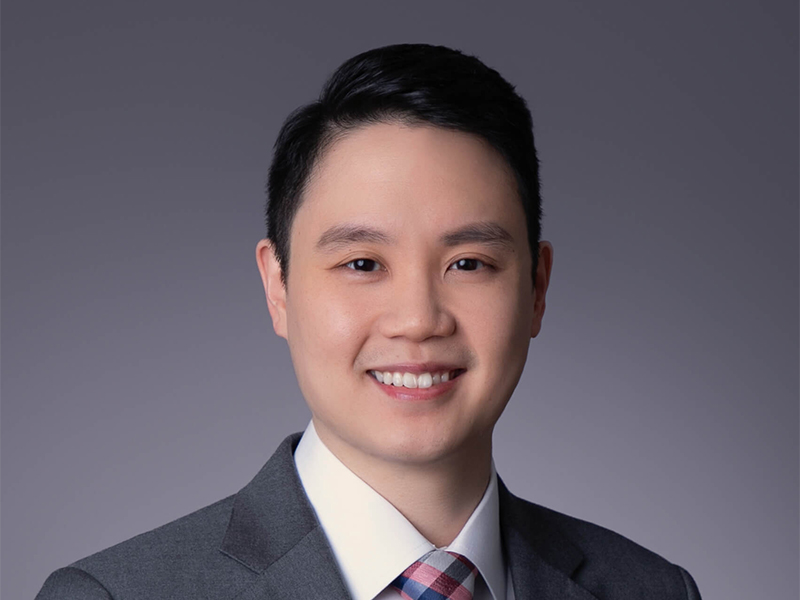Looking for the right financial investment? Market volatility and living abroad as an expat can make it a tricky choice. We hear from three financial advisors about how to start investing, how much to invest, what to include in your portfolio and why investing in property or shares could be worth considering.
Odin Mortgage
Investing in property in Australia
BEN WONG is a Head Mortgage Broker and Finance Director at Odin Mortgage. He leverages his qualifications and extensive experience in international investment banking, lending and taxation to deliver optimal lending solutions for clients. As an Aussie expat myself, I had a few burning questions for Ben about investing Down Under.
What services do you provide at Odin Mortgage?
We’re an Australian mortgage brokerage firm based in Singapore, Hong Kong and Australia. We provide a comprehensive mortgage lending platform catering to Australians abroad and other foreign investors looking to access Australian property investment opportunities and equity cash-out solutions. We specialise in expat lending and offer a wide range of lending solutions through partnerships with banks and non-bank lenders inside and outside of Australia.
Why is investing in property in Australia a good financial option?
Because of its stable growth, strong demand and favourable lending policies. The country offers diverse investment opportunities, from residential to commercial properties, providing investors with options to suit their financial goals and risk appetite.
Why do your clients want to buy property in Australia?
Our clients choose to invest in property in Australia for various reasons, including the prospect of capital growth, rental yields and wealth creation. Many Australian expats also have a strong connection to home and want to maintain a property portfolio while living abroad.
Are there any special considerations to take into account when investing in property in Australia as an expat or non-resident?
Yes! These considerations include obtaining approval from the Foreign Investment Review Board (FIRB) and understanding the tax implications of investing as a non-resident. Another one is navigating the complexities of foreign income and mortgage lending policies.
What’s the process of applying for a home loan in Australia as an expat?
You’ll need to provide documentation of your foreign income, meet certain lending criteria, and obtain pre-approval. Odin Mortgage can help by offering expert advice and guiding you through the application process. We also liaise with lenders to secure the most competitive loan product available. We can guide you through every stage of the process from start to finish!
What is involved in refinancing an existing Australian mortgage?
You need to compare current loan products, assess your financial situation and submit a new loan application. At Odin Mortgage, we help clients navigate the process by providing expert-recommended refinance options. This ensures they obtain the most competitive rate product available and maximise their interest savings.
What do you love about your job?
The most rewarding part is delivering the best lending solutions to our clients and witnessing their financial goals being realised. It’s a privilege to play a part in their journey towards wealth creation and financial freedom.
A word from clients
“Odin were very professional and helped us immensely with our recent purchase. As expats, it was really important to have a finance team who could support our specific situation and needs. Odin worked tirelessly to make it all happen and we are now the proud owners of a new pad in Australia!” – N Sadler, Singapore
“Ben and the Odin team are highly professional with an extensive network to source the best options for mortgages. I can highly recommend their services as they have saved me considerable time and cost. I’ve used them multiple times for properties in Australia and will continue using their services.” – P Porter, Singapore
Odin Mortgage
Singapore Land Tower, Level 30, 50 Raffles Place
8917 5061 | odinmortgage.com
Providend Ltd
MAX KEELING, Head of Expat Advisory at Providend Ltd, says that you can begin investing with only a small amount of money, though he does suggest considering a few factors before you start.
When should I start investing?
‚ÄúTo invest or not‚Äù isn’t a binary decision. Just as there’s risk in investing, there’s risk in not investing. It’s more prudent to invest a portion of your cash holdings, one that allows you to sleep soundly while mitigating short-term market risks, into a portfolio that fits your need, ability and willingness to take risks.
How do I start investing?
You can begin investing with as little as $100 on certain platforms and add more money as you earn and save. Having said that, you should really only consider investing after setting aside an emergency fund of cash reserves that can sustain three to six months’ expenses, and getting basic life and health insurance.
Before you start, there are a few factors to consider, including your preferred investment style, how you want your money to be used and for what purpose, and your risk tolerance.
What should I have in my portfolio?
Keep it simple, with a globally diversified equity fund that will be the main driver of long-term gains and a globally diversified bond fund to provide stability. The allocation between these two should be determined by your willingness and need to take risks.
How does a financial advisor help with investment planning?
You should consider working with a financial advisor if:
- you need help in developing a single view of your global portfolio;
- you’re seeking clarity on whether consolidating your various assets and tracking current cash flow and resources keeps you on track to achieving your goals; and,
- you require advice in structuring your wealth so that it can be passed down in a sensible manner
6309 2488 | communications@providend.com
providend.com
Chartwell Associates
Chartwell has a team of experienced financial advisors who hold all the relevant professional qualifications and who will focus on your own goals and objectives so you can achieve what you want. Here are three ways they can help.
#1 How to start investing
One of the areas in which Chartwell provides financial advice is savings and investments as an expat living in Singapore. If you’re need help to learn how to start investing, the advisors will take you through the range of available products that you can consider, including offshore investment options. Besides that, they’ll also walk you through the jurisdictions and tax obligations of investing from here.
#2 Business
Another service provided by the company is planning for small businesses or partnerships. Whether it’s corporate tax requirements, business protection, employee benefit schemes or shareholders’ agreement, the team can provide insights into the type of agreements that you should have in place to ensure business continuity.
#3 Education
If you’re an expat with kids, you’ll be faced with decisions around when and where to send your children to school in Singapore as well as for college and university education in the future. Chartwell will work with you on planning education fees well in advance, while taking into consideration your current financial situation as well as life goals. Education fee planning can help you avoid any unnecessary interruption to your child’s school or social life, and have you prepared for any future challenges in this area.
The team also provides planning and advice for insurance, retirement, wills estate planning and UK pension transfers. Their advisors will determine the most effective and affordable solution tailored for your needs.
6225 5707 | info@chartwell-associates.com
chartwell-associates.com
This article first appeared in the July 2023 edition of Expat Living. You can purchase the latest issue or subscribe, so you never miss a copy!
Want to know more about life in Singapore? Here’s our huge guide to international schools and where to live in Singapore.








